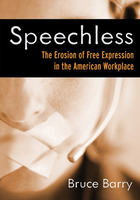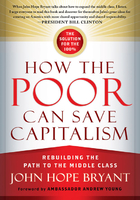In our broad sweep through Western intellectual history, we shall encounter many great scientists and great jurists-on some occasions even embodied in the same person-whose ideas shaped the coevolution of the concepts of the laws of nature and of human laws. To tell this story clearly we first need to unravel some common misconceptions about the similarities and differences between science and jurisprudence.
Both science and law include a theoretical and an applied component. Applied science produces, among other things, technology-the development of specific technical capabilities. Thus science and technology operate in two strongly connected but quite separate domains, and actually technology often takes on a life of its own.
A similar phenomenon occurs in law. A clear distinction exists between legal theory and legal practice.[20] On the one hand, legal theory (also known as jurisprudence, or the philosophy of law) is a theoretical inquiry into legal phenomena. Human laws are the subject matter of jurisprudence just as the laws of nature are the subject matter of science. Legal practice, on the other hand, corresponds to technology in many ways. Like technology, it has a life quite autonomous from legal science, and lawyers sometimes distinguish between "law in books" and "law in action."[21]
JUS AND LEX
In order to better understand these parallels, we need to introduce a fundamental distinction that is quite obvious to lawyers but not to the general public. In English, the single term "law" is used to describe two distinct phenomena that many languages other than English use two different terms to describe. Latin jurists, at the dawn of the Western legal tradition, distinguished the idea of jus from that of lex. Similar juxtapositions can be found in many languages-droit and loi in French, derecho and ley in Spanish, diritto and legge in Italian, Recht and Gesetz in German, pravo and zakon in Russian, and so on.
In all these languages, the meaning of law as jus indicates the law as a conceptual framework that abstracts from the reality of human relationships a set of more-or-less coherent principles and rules that are general enough to be reproduced in a variety of settings. This framework is theoretically discussed, elaborated, and continually modified by lawyers serving in a variety of professional capacities (such as professors, judges, practitioners, and legal philosophers). The work of these jurists continually adapts the framework of the law to changing social, political, and cultural conditions, thus "making the law" in these different professional capacities. The roles of academic scholars, who engage in theoretical work and teach the law as a university discipline, and of judges, who in their judicial capacity coherently apply these principles and rules to solve actual social conflicts, are particularly significant in the Western legal tradition.[22]
Jurisprudence, the theoretical discipline of the law, is acknowledged by lawyers, but not by the general public, who often do not appreciate the richness of this intellectual component in the laws that regulate their lives. People usually reduce the idea of law to what is meant by the term lex (plural leges; the Latin root of "legal" and "legislation"): a concrete rule that governs a factual situation and reflects the will of a governing authority endowed with the power to enforce it. Such specific laws are usually harmonized within the grand scheme of legal theory by the interpretive activity of legal professionals (again in their various institutional capacities) and thus become part of law as a legal system (i.e., the orderly combination of particular laws into a whole, according to rational principles). Thus, the legal systems of the United States or France are not mere aggregates of enacted rules in those countries. The laws governing us in each territory include the highly intellectual dimension of jus, which is a deep part of our culture.[23]
An objective legal order determines and defines subjective individual rights, such as property rights or personal rights. In the languages mentioned above, the words corresponding to jus translate as the English word "right," a term that evokes both the idea of an objective legal framework and the idea of a subjective right. In Western jurisprudence, rights are seen as zones of protected freedom.[24]
The meaning of law as lex is value-neutral; it refers to the institutional force that produces and formally enacts it, thus making it binding. The broader meaning of law as jus, in contrast, is laden with desirable values, being associated with the ideas of just, straight, and right (as opposed to wrong).
DESCRIPTIVE VERSUS NORMATIVE LAWS
A key difference between the laws of nature and human laws seems to be that the former are descriptive (giving information about something in the natural world) while the latter are normative (prescribing a standard of behavior for humans). However, as we explore the surprising parallels between how these laws have been conceptualized in science and in jurisprudence, we shall see that this clear-cut distinction must also be modified. On the one hand, a descriptive element occurs in the practice of jurists abstracting the relevant laws from a specific network of social relationships. On the other hand, recent discoveries in science, especially in ecology and climate science, suggest strongly that the ecological principles evolved by ecosystems over billions of years to sustain the web of life must be understood as normative laws for human conduct if we are to overcome our global environmental crisis.
"NATURAL LAW" AND THE "LAWS OF NATURE"
In our comparisons of the laws of nature and human laws we will have to be careful to avoid confusion between the terms natural law and laws of nature.[25] In legal parlance, a "natural law" is one that should be binding only if it is consistent with some higher validating principle, which might stem from a divine source or from human reason. This understanding is in direct contrast to a school of thought called legal positivism. According to legal positivists, law derives its binding power from a sovereign authority, regardless of whether that law is just, fair, or even rational.
The origin of the term "laws of nature" itself is rather fascinating. Throughout the earlier centuries of Western science, various terms were used for the short, concise statements or equations in which scientists like to summarize their theories. They were called propositions, rules, axioms, principles, maxims, and so on. During the second half of the seventeenth century, the expression "laws of nature," which had rarely been used before, came into frequent use, and in subsequent centuries it completely replaced the previously used terms.
The concept of "laws of nature" was often used explicitly in analogy with human laws. As human laws were binding rules of conduct for a community, so the laws of nature were understood as an order legislated for the entire universe by a divine authority. This analogy caused several philosophical and theological problems. Human laws, notoriously prone to inconsistency, variation, and violation, seemed a poor model for the allegedly immutable regularity of the natural order. Moreover, it was difficult to understand how inanimate matter could be said to "obey" laws in any but a metaphorical sense. In spite of these philosophical difficulties, the concept of the laws of nature became an integral part of natural philosophy or natural science. How this came to be is an interesting story, to which we shall return in [Chapter 2].
In the twentieth century, when scientists became increasingly aware of the approximate nature of all their models and theories, they seem to have stopped referring to the regularities they discovered as laws, except for references to the well-known "laws" formulated in previous centuries.
LAWYERS AND SCIENTISTS
Lawyers and scientists are often seen as very different kinds of people. It is usually said that students who do poorly in math and science are those who sign up for law school. Despite many exceptions, especially in American law schools where legal training is offered to students as a graduate program, this conviction is difficult to dispel. Yet because of the difficulties of a career in science, bright young people, after spending a few years in scientific research, often settle for law school, which promises them a more secure and lucrative future. Even these students tend to interpret law school as a second life, a complete shift to a domain of activity unrelated to their previous one. The only exceptions, perhaps, are patent lawyers, who must add some understanding of science to their legal knowledge in order to argue for the innovative nature of the invention they seek to patent.
This segregation is confirmed by the common stereotypes of these two disciplines and their representatives. While scientists are perceived as absentminded, casually dressed individuals who live in a refined world of abstract theory with little practical reality, lawyers are usually perceived as formally dressed people who are practically oriented, concentrating mainly on trivialities (such as negotiating their retaining fee) and engaging professionally in all sorts of nitty-gritty social intercourse-the kind of things that normal people, although worried by them, would rather not have to deal with themselves.
A few years ago, a very distinguished and highly theoretically minded Harvard law professor was appointed for a semester as a visiting fellow at a center for advanced interdisciplinary studies at another Ivy League institution. All the other fellows-physicists, sociologists, anthropologists, historians, and philosophers-were engaging in highly intellectual exchanges with one another, but whenever he entered the faculty common room these conversations would stop. The professor of jurisprudence would then be approached by a sociologist asking him about how to divide the expenses of replacing the elevator in her condominium building, or by a physicist inquiring about whether his insurance company should refund him for damages produced by his current house sitters, and so on. These recurring incidents were frustrating for the professor of jurisprudence, since they undermined his self-esteem as a high-profile intellectual.
This more-or-less constructed social segregation between lawyers and scientists has not always existed, and it does not mean that the legal profession is not considered socially prestigious in many countries. Together with medicine and theology, law schools (known in Continental Europe as faculties of jurisprudence) were historically among the very first higher academic institutions in the medieval West.[26] Lawyers were among the most prestigious intellectuals throughout medieval times and certainly were not looked down upon as "ambulance chasers" by other intellectual elites, as happens in the United States today. An even cursory look into the biographies of some of the most outstanding intellectuals in the history of Western science shows some interesting surprises.
Sir Francis Bacon, one of the inventors of the modern scientific method of inquiry, was also a very outstanding lawyer. He served as lord chancellor of England-perhaps the highest, oldest, and most distinguished judicial post in Great Britain-and his struggle with Sir Edward Coke in the early seventeenth century shaped much of the current structure of Anglo-American law.[27] Sir Isaac Newton, the most popular icon of modern science before Albert Einstein, while never active as a practicing lawyer, nevertheless occupied a high legal post, that of chancellor of the exchequer. In that capacity, he chaired one of the most ancient judicial institutions of the common-law tradition, devoted to tax law issues. Newton's contemporary Gottfried Wilhelm Leibniz (1646-1716), the outstanding German philosopher and mathematician who invented differential calculus independently of Newton, also thought deeply about the practical affairs of state; he wrote voluminously on law, ethics, and politics. In the following chapters, when we sketch the parallel history of science and law in the West, several such fascinating convergences will emerge.
THE SCIENTIFIC METHOD
One of our principal tasks is the exploration of the conceptual and historical relationships between natural science and jurisprdence; thus it is important to clearly understand the nature of science before we begin. Today's modern word "science" is derived from the Latin scientia, which means "knowledge" in general, a meaning that was retained throughout the Middle Ages, the Renaissance, and the Scientific Revolution. What we call "science" today was known as "natural philosophy" up until the nineteenth century.
The modern understanding of science, which evolved during the eighteenth and nineteenth centuries, is that of an organized body of knowledge acquired through a particular method known as the scientific method. The characteristics of the scientific method were fully recognized only during the twentieth century and are still frequently misunderstood, especially by the general public and by lawyers.
The scientific method represents a particular way of gaining knowledge about natural and social phenomena that occurs in several stages. First, the phenomena being studied are systematically observed, and the observations are recorded as evidence, or scientific data. In some sciences, such as physics, chemistry, and biology, the systematic observation includes controlled ex-periments; in others, such as astronomy or paleontology, such experiments are not possible.
Next, scientists attempt to connect the data in a coherent way, free of internal contradictions. The resulting representation is known as a scientific model. Whenever possible, scientists try to formulate their models in mathematical language because of the precision and internal consistency inherent in mathematics. In many cases, however, especially in the social sciences, such attempts have been problematic because they tend to confine the scientific models to such a narrow range that they lose much of their usefulness. Thus we have come to realize over the last few decades that neither mathematical formulations nor quantitative results are essential components of the scientific method.
Finally, the theoretical model is tested by further observations and, if possible, additional experiments. If the model is found to be consistent with the results of these tests, and especially if it is capable of predicting the results of new experiments, it eventually becomes accepted as a scientific theory. The process of subjecting scientific ideas and models to repeated tests is a collective enterprise of the community of scientists, and the acceptance of the model as a theory is done by tacit or explicit consensus in that community.[28]
In practice, these stages are not neatly separated and do not always occur in the same order. For example, a scientist may formulate a preliminary generalization or hypothesis based on intuition or initial empirical data. When subsequent observations contradict the hypothesis, he or she may try to modify the hypothesis without giving it up completely. But if the empirical evidence continues to contradict the hypothesis or the scientific model, the scientist is forced to discard it in favor of a new hypothesis or model, which is then subjected to further tests. Even an accepted theory may eventually be overthrown when contradictory evidence comes to light. This method of basing all models and theories firmly on empirical evidence is the very essence of the scientific approach.
Crucial to the contemporary understanding of science is the realization that all scientific models and theories are limited and approximate. Twentieth-century science has shown repeatedly that all natural phenomena are ultimately interconnected and that their essential properties, in fact, derive from their relationships to other things. Hence, in order to explain any one phenomenon completely, we would have to understand all the others, which is obviously impossible. No matter how many connections we take into account in our scientific description of a phenomenon, we will always be forced to leave others out. Therefore, scientists can never deal with "truth" in the sense of a precise correspondence between a description and the described phenomenon. In science, we always deal with limited and approximate descriptions of reality.
To repeat, the approximate nature of scientific knowledge is a consequence of the fundamental interconnectedness of natural phenomena. In their attempts to perceive and define regularities and order in this interconnected web of relationships, scientists identify certain stable patterns as "objects," "structures," "processes," and so on. The way these identifications are made is subjective to some extent; it depends on the interpretation of the observed patterns by a particular observer. This process has forced scientists to abandon the Cartesian notion of objective scientific descriptions, independent of the observer. In contemporary science, we have to accept the fact that a subjective dimension is implicit in every scientific model or theory. This does not mean that we have to give up scientific rigor. When we speak of an "objective" description in science, we mean first and foremost a body of knowledge that is shaped, constrained, and regulated by the collective scientific enterprise, rather than being merely a collection of individual accounts. Such intersubjective validation-agreement among separate individuals-is standard practice in science and need not be abandoned.
THE LEGAL METHOD
Since interconnectedness is a fundamental feature of human existence, approximation is a central feature of legal thought as well. Jurisprudence, however, has no single "method." In different countries, in different periods of history, and sometimes even at the same time, different methods have competed with each other to grapple with the inherent complexity and variation of social life.[29] Nevertheless, the work of legal theorists shares some important characteristics with the scientific method.
The systematic observation of the facts of life, usually in the form of social conflicts between individuals or institutions, is the typical activity of the jurist. She proposes theoretical models and theories in order to group apparently very different facts within the same conceptual framework. For example, all social conflicts arising from a previous voluntary social exchange are grouped under the law of contracts; all social conflicts arising outside of any previously planned relationship are grouped under the law of torts. She tests her model with empirical evidence (that is, by consulting all the previously available records of similar social intercourses) and she accepts the limited and approximate nature of her models and theories, especially since different jurisdictions usually follow different organizational principles.
The jurist carries on her interpretation either by deduction or by induction (most often with a mix of the two), depending on whether her point of departure is a general principle, a text to be applied to specific facts, or a previous court decision to be applied by analogy. (The Anglo-American legal tradition mostly deploys an inductive method, while the Continental tradition favors the deductive one.[30]) This process has long been described as mechanical, and jurists, in order to bolster the legitimacy of their work, have usually denied any creative role in carrying it out.
As a consequence of this self-portrayal, the legal method appears in today's common perception as merely an effort of textual interpretation, an activity much different from that carried out by the scientist. While the laws of nature are hidden patterns and regularities that the scientist may discover in the course of research, human laws are considered to be mostly textual, normative words, written down in legal documents endowed with the stamp of officialdom and therefore binding and enforceable. However, our previous cursory discussion of the different meanings of human laws has already shown that reality is much more nuanced and complex.
Even written human laws are not self-evident. Their interpretation as laws is the result of a rather complex intellectual process in which the professional jurist plays a crucial role as a "maker" of the legal order. To begin with, the jurist must situate any given factual situation in a certain context, sorting the generally reproducible aspects of any social intercourse into those that are relevant and those that are not. For example, whether the driver of a car that caused an accident was black or white is deemed irrelevant in the American law of torts, while it is relevant whether the driver was driving under the influence of alcohol or not.
The lawyer will also have to locate the legal authority that will guide her analysis. Such authority may be a specific text or a precedent from case law, but not necessarily; in the current global setting, because complex transactions involve the law of more than one country, other authorities are being invoked more frequently. In fact, the interpreter can pick a given custom that she deems relevant in the specific context in which the intercourse happened, or a general principle contained in some broad constitutional language (for example, fairness, equity, or good faith).
Especially in cases where more than one sovereign state is involved, as is true for all transactions of global scope, there simply might not be a written source to consult, and the jurist will have thus to "discover" the governing law by a process of creative interpretation of the factual reality.[31] Once the given authority (textual or not) has been located, the lawyer proceeds either by deduction from the authority to the rule that applies in a given factual situation, or by induction from an aggregate of solutions of specific cases to create a general principle. In short, the legal interpreter, just like the scientist, enjoys considerable discretion in the choice of her methodological preferences. In practice, she would move back and forth between deduction and induction until she reaches a satisfactory solution.
This process happens as a concrete effort to solve a given case (if the interpreter is a judge), or to argue for a given solution of such a case (if the interpreter is an attorney); it can also be a theoretical effort to suggest the best possible principles or solutions for hypothetical cases (if the interpreter is an academic scholar). For example, in deciding whether the law accepts gay marriages, the lawyer has significant discretion in deciding whether to start from an abstract principle of equality or from a more traditional idea of the reproductive function of marriage. In all these cases, the role of the interpreter is in practice very creative. Despite long periods of denial of the interpreter's creative role, today practically every lawyer acknowledges, along with Benjamin Cardozo (1870-1938)-the U.S. Supreme Court Justice who produced quite a scandal with his "choice for candor"-that whoever interprets law, makes it.[32] In other words, jurists now recognize that human laws are not "out there," separate from their interpreters, and that the process of their emergence (of becoming relevant) is probably no less complex than the discovery of a "law of nature."
A CALL FOR ECOLEGAL LITERACY
The first step in creating a new ecolegal order founded on systems thinking rather than on an outdated mechanistic way of thinking is to become aware of our own power to influence law through our aggregate action. This ecological vision of the law, as we suggest for the first time in this book, can have a tremendously empowering effect. It can unleash the "power of the people," reclaiming law as a common, to create a new ecolegal order that, following our systemic understanding of the world, can protect it for future generations.
One of the great challenges of our time is to build and nurture sustainable communities-social, cultural, and physical environments in which we can satisfy our needs and aspirations without diminishing the chances of future generations. In pursuit of this goal, we must recognize that scientific positivism and reductionist economic thought, rather than being the reality that our laws assume and reflect, are actually ideologies serving short-term accumulative interests.[33] We can counteract these ideologies and support an eco-centric vision by using these same human laws. We need a fundamental change of perspective from economic efficiency to ecological sustainability, from private property rights to accessible commons.
A sustainable community is designed in such a way that its ways of life, businesses, economy, physical structures, and technologies do not interfere with nature's inherent ability to sustain life. The groundwork for this idea began with the 1972 publication of a radical report on a computer simulation, The Limits to Growth, which was authored by an MIT group led by Dennis and Donella Meadows. Following that, Lester Brown introduced the concept of sustainability in the early 1980s. A few years later, a report by the World Commission on Environment and Development, known as the Brundtland Report of 1987, presented the notion of "sustainable development."[34] The concept of sustainability has often been distorted, co-opted, and even trivialized by being used without the ecological context that gives it its proper meaning. What is sustained in a sustainable community is not economic growth, competitive advantage, or any other measure used by economists, but the entire web of life on which our long-term survival depends. The first step toward a sustainable community, naturally, must be to understand how nature sustains life. This involves a new ecological understanding of life, or "ecoliteracy," as well as a new kind of "systemic" thinking-thinking in terms of relationships, patterns, and context.
Once we have achieved some degree of ecoliteracy, we must make urgently needed shifts in law and economics. Human laws, like the laws of nature, need to be understood as manifestations of a relational order in which the individual is not alone but is connected to and shares power with other living inhabitants of the planet, who are entitled to equal access to the global commons. These inhabitants are not only other human beings but also other animals, plants, and in general all the Earth's ecosystems. The introduction of a rapacious species into a new ecosystem, for instance, would require an ecolegal review to consider the broader impacts of such an action beyond the immediate profit motive. If such an ecolegal order were present, the Nile perch would most likely not exist today in Lake Victoria; or, most important, global corporations would not be able to claim and obtain rights as though they were living creatures.
To be sustainable, human laws should serve, rather than exploit and plunder, the web of life. In law as in science, we must begin to focus on a relevant understanding of the whole rather than only the component parts. To achieve this goal, not only the laws of nature but also the nature of law should be understood by the general public. To facilitate this understanding, we shall now follow the coevolution of scientific and legal thought from antiquity to the modern era.















